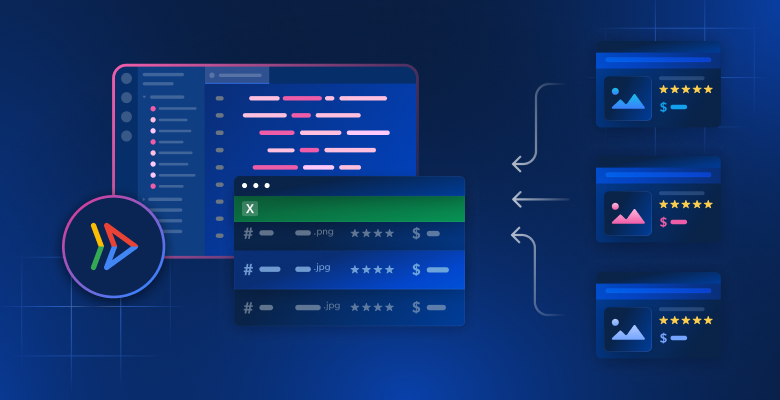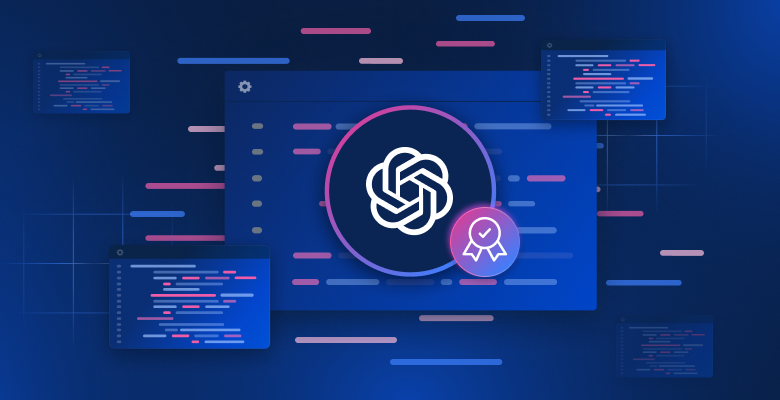In this guide, you will learn:
- What an IP address is.
- Why you should hide your IP address.
- How to hide your IP address.
Let’s dive in!
What Is an IP Address?
An IP address, short for Internet Protocol address, is a numerical label assigned to each device connected to a computer network. It serves as an identifier, allowing devices to communicate with each other over the Internet. You can think of an IP as a sort of home address for your device in the digital world.
This is what an IP looks like:
192.158.1.37
If you want to discover your IP, you can visit sites like “What Is My IP Address.”
When a device sends or receives data over the Internet, this is routed to its destination based on these addresses. Without IPs, devices would not be able to locate and communicate with each other. While an IP address is essential for online connectivity and communication, it also uniquely identifies you on the Web.
Why You Want to Conceal Your IP
Now that you know what an IP address is, you may be wondering, “Why should I hide my IP?” Well, there are at least five good reasons for that!
Before digging into them, you need to understand what “hiding an IP” means. Every device that connects to the Internet must have a valid IP. So, you cannot just erase your IP address. At the same time, while an IP is required to surf the Web, that may not be yours. Through special methods that you will explore later in this article, you can change your IP to avoid exposing it. In other words, you can conceal your IP address.
Let’s now explore the five best reasons to hide your IP address:
- Anonymity: An IP address uniquely identifies your device on the Internet. By hiding your IP, you can protect your online identity. This will make it harder for sites, advertisers, or malicious actors to track your online activities. The result is greater privacy and security, enabling you to surf the Internet without leaving digital traces.
- Avoid IP bans: Most sites monitor incoming requests to prevent attacks and unwanted activity. That way, when someone makes too many requests to a site in a short time, their IP will be banned. That is why exposing your IP while performing operations such as web scraping may be a bad decision. Plus, all activities performed online contribute to the reputation of your IP. Hiding it can mitigate IP reputation issues, ensuring uninterrupted access to the Internet. Find out more in our guide on how to bypass an IP ban.
- Prevent geolocalization: Given an IP address, it is possible to physically locate the underlying device. Hiding the IP address enables you to obscure your physical location, thwarting geolocation attempts. This not only improves your privacy, but it also helps you bypass geo-restrictions imposed by countries or sites like streaming services .
- Bypass restrictions: Concealing your IP address is an effective way to circumvent various restrictions imposed by sites, networks, or ISPs. That includes rate limiting measures that many sites use to limit the number of requests a given IP can make in a specified time frame. The result? An unrestricted and more consistent browsing experience.
- Prevent attacks and stop hackers: Hiding your IP address adds an extra layer of defense against several cyberattacks. These include DDoS (Distributed Denial of Service), brute force attacks, or phishing attempts. Masking your IP means reducing the risk of unauthorized access or compromise of your device.
Fantastic! You are ready to see how to hide your IP address!
How to Hide Your IP Address With 5 Different Approaches
Explore the five best methods to hide your IP address, ranked from the most effective to the least recommended.
1. Use a Proxy
A proxy server acts as an intermediary between the device and the Internet. When you access a website through a proxy, the proxy server:
- Receives your requests
- Forwards them to the destination site on your behalf
- Receives the responses from the site
- Forwards the responses back to your device
This relay mechanism ensures that online servers always see the proxy server’s IP and not yours.
The best providers offer proxy services including large networks with millions of proxy IPs spread all over the globe. In other terms, you can choose a proxy server in the region you prefer and geolocate there. Proxies can be configured either at the operating system level or used programmatically in applications and scripts.
Note that there are many types of proxies, including HTTP proxies, datacenter proxies, residential proxies, and many others. Each of them supports specific use cases and uses. Learn more in our ultimate guide on proxy IP types.
Pros:
- IP rotation over millions of IP addresses, especially when using residential proxies.
- Access to geo-restricted restricted content thanks to servers in multiple locations.
- Integration with most programming languages, operating systems, browsers, and HTTP clients.
- Faster connections as proxy servers cache the most accessed content.
- Different types of proxies to support a wide range of scenarios and applications.

- Free proxies are unreliable and may expose your data to malicious actors.
2. Buy a VPN Service
A VPN, short for Virtual Private Network, creates a secure and encrypted channel between your device and a remote server controlled by the VPN service. Usually, the VPN provider comes with an application that you have to install on your device. After activating and configuring it properly, you can choose between one of the servers controlled by the VPN provider.
Once you select a server, the VPN application will create a secure connection and start routing your Web traffic through that server. The VPN server will then contact the actual destination of your requests and forward the responses back through the secure channel. Just as with proxies, this mechanism hides your IP address. To learn more about this, see our article VPN vs proxy.
In short, a VPN is a technology for creating a secure connection over a public network. In detail, it helps you access and transmit data as if you were connected to a private network.
Pros:
- High security with encryption even on a public network.
- Geo-restriction bypass with VPN servers in many countries.
- Easy OS-level integration.

- Premium VPN services come with a high subscription fee.
- VPNs can slow down your Internet speeds due to the encryption and routing processes.
- Hard to programmatically integrate into custom scripts.
3. Leverage Tor
Tor is a decentralized network that enhances online privacy by routing Internet traffic through a series of volunteer-run servers called nodes. Each node in the Tor network encrypts and forwards traffic, making it difficult to trace the user’s original IP address.
Tor relies on onion routing, in which data is encapsulated in multiple layers of encryption. The easiest way to browse the Web through Tor is to use the Tor Browser. Although this is an effective way to hide your IP, the Tor network is quite unreliable.
Pros:
- Enhanced anonymity and privacy.
- Free and open source.

- Reduced Internet speed due to routing through multiple nodes.
- No control over the location of the exit node.
- Unreliable connections due to complex routing system.
- IPs of exit nodes are known and can be easily banned by sites.
- Tor is often associated with illegal activities, which raises ethical questions about its use.
4. Restart Your Router for a New IP From Your ISP
Most ISPs assign dynamic IP addresses to users. An IP is dynamic when it changes periodically, from connection to connection. As an easy way to get a new IP address, you can then try rebooting the router. By power cycling your network equipment, you can induce the ISP to give you a new IP.
Although this method may work, the number of IPs you can receive is not unlimited. In addition, they will also point to your physical location.
Pros:
- A new IP for free.
- Restarting your router is straightforward and does not require technical expertise.

- No control over the specific IP address assigned by your ISP.
- Your new IP address may only be temporary, as ISPs often rotate IPs periodically.
- Restarting your modem interrupts your Internet connection temporarily.
- Requires manual action.
- Does not protect against geolocalization.
5. Connect to a Free/Public Wi-Fi
By connecting to a public Wi-Fi network, you are hiding your IP address behind the network’s IP.
Internet traffic will appear to come from the network IP address rather than from your home IP connection.
At the same time, keep in mind that public Wi-Fi networks are not secure. In particular, they expose users to malicious activities such as data theft, malware injection, and identity fraud. Here is why you should try to avoid them as much as possible.
Pros:
- Free/public Wi-Fi networks are widely available.

- Security risks because of their unprotected nature.
- Risk of data snooping by hackers.
- Limited privacy as these Wi-Fi networks may log your browsing activity.
- Some of them are traps set by hackers to steal data.
- Slow connection because public Wi-Fi networks are usually overcrowded.
Conclusion
In this article, you learned what an IP address is, why you should hide it for security and privacy, and what are the top five approaches to do that. Thanks to what you learned here, you know how to hide your IP address.
As seen in this guide, the best way to conceal your IP is through a proxy. The problem is that there are dozens of providers online and choosing the best one is not easy. Save time and go directly to the best in the market, Bright Data!
Bright Data controls the best proxy servers in the world, serving Fortune 500 companies and more than 20,000 customers. Its offer includes a wide range of proxy types:
- Datacenter proxies – Over 1.3M datacenter IPs.
- Residential proxies – Over 150M residential IPs in more than 195 countries.
- ISP proxies – Over 1.3M ISP IPs.
- Mobile proxies – Over 7M mobile IPs.
Register now and talk to one of our data experts about our proxy and scraping solutions.







